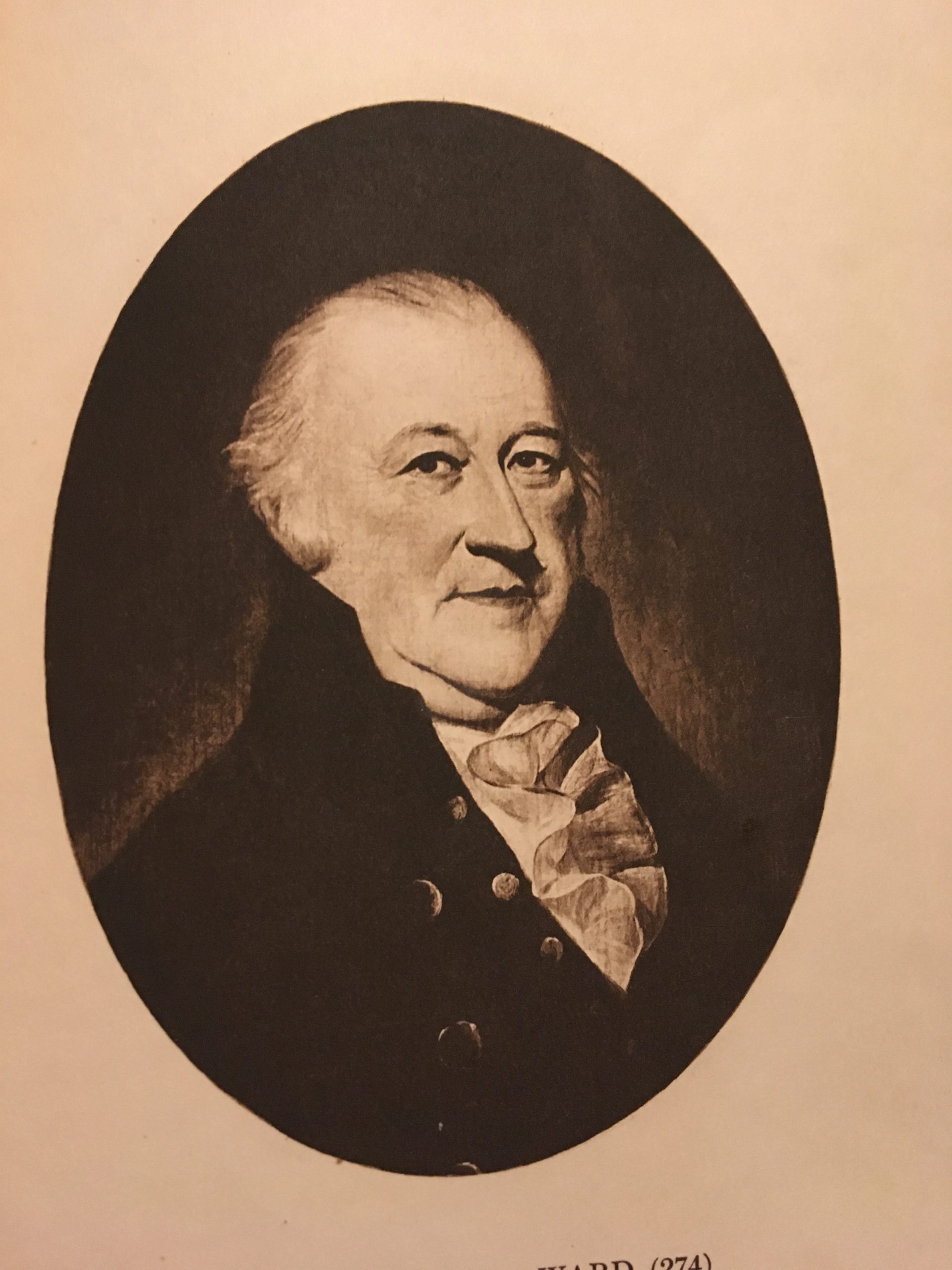Upon his return to Shrewsbury at the conclusion of the war, Ward was appointed colonel of his local militia regiment. He became very active in the patriot side of the political controversy with England from the beginning.
The Provincial Congress of Massachusetts appointed him Brigadier General in 1774 and named him as Second General Officer to the Massachusetts militia. After the events at Lexington and Concord, Ward took over the role of First General Officer to command the militia. He was named Commander in Chief of Massachusetts forces on May 19, 1775, and appointed to First Major General by the Continental Congress on June 17, 1775. He was in command the of the revolutionary forces at the Battle of Bunker Hill and continued to lead the Siege of Boston until George Washington’s election of Commander-in-Chief by the Continental Congress. Being second in seniority only to Washington, Ward took command of the right wing.
When Washington left for New York, Ward took command of the Eastern Department and held that post until 1777. He was the Massachusetts chief executive during the war from 1777–1779. Upon stepping down from that appointment, he became a member of the Second and Third Continental Congresses in 1780 and 1781, respectively. This was followed by roles in the Massachusetts General Court culminating in the position of Speaker of the House in 1786 during the time of Shay’s Rebellion. He was a member of the House of Representatives for Massachusetts from 1791–1795 as a Federalist. He also spent many years as a judge in Massachusetts prior to retirement in 1797. Ward passed away in Shrewsbury, Massachusetts on October 27, 1800.


